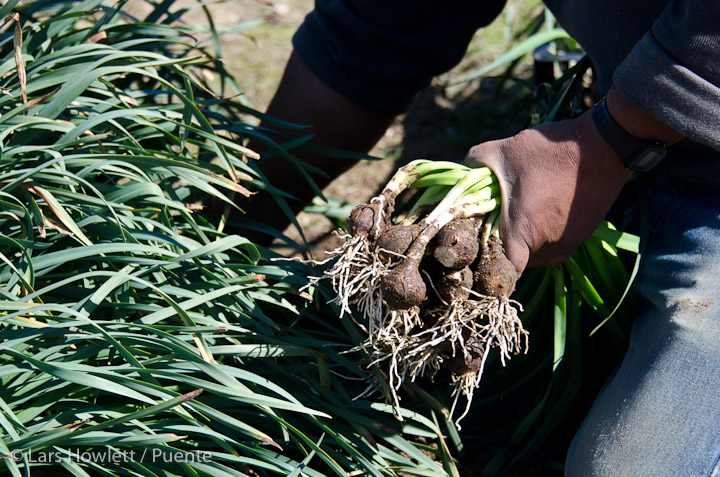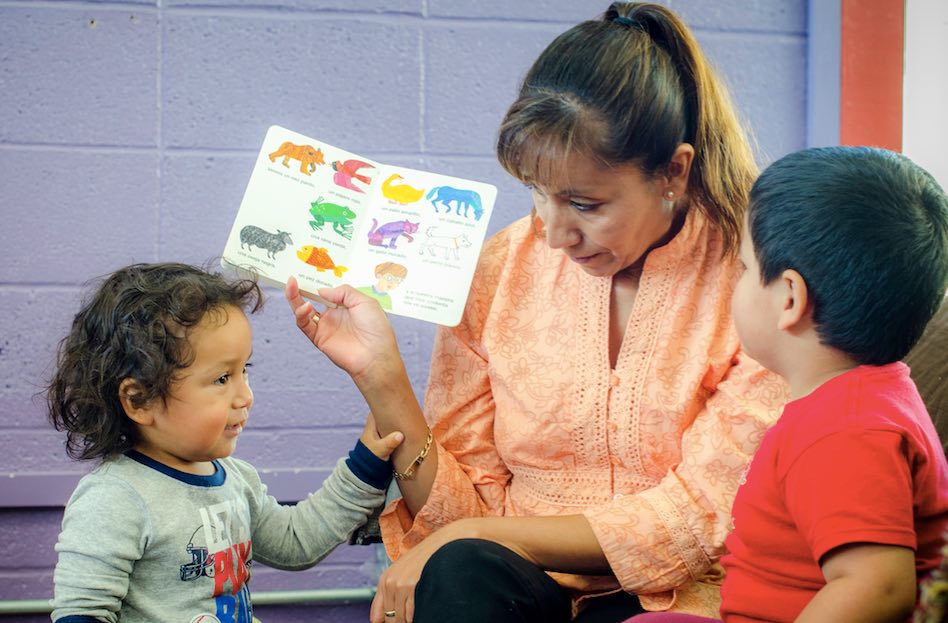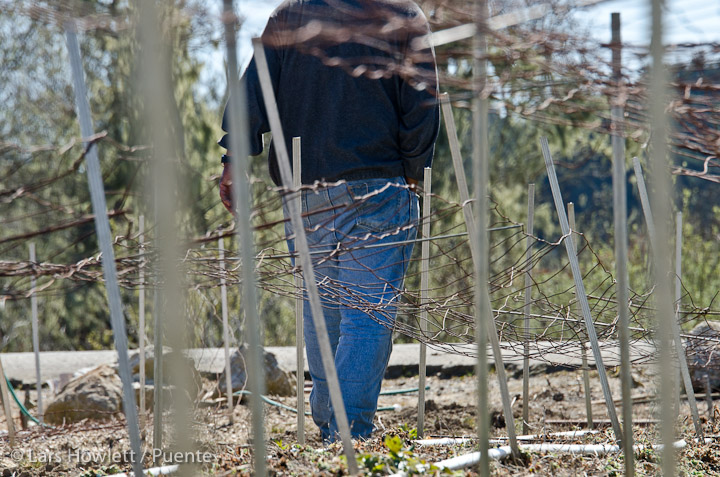
In light of recent changes to federal immigration policy, Puente has accepted the responsibility to stand alongside our participants in solidarity. Puente is ready to lead efforts to work alongside immigrants- — both documented and undocumented — and to share stories of immigrants as contributors and heroes in our local community. As an organization, we believe in the power of individuals and families to advocate and work toward individual and community solutions. One way that we can continue our work is to share stories and specially those untold stories of the heroes that live among us on the coast.
Carlos
Carlos and his family participate in Puente programs. He lives nearby with his wife and kids. On the night of Puente’s Community Action Forum, Carlos came seeking answers. The forum provided a space for community members to ask questions and make sense of all the immigration headlines that have become part of our daily lives under this Administration.
Carlos and I begin to talk. My initial question was simple: Why did you choose to come to the U.S?” Immediately Carlos responded, “-for my family. I wanted my children to have better opportunities and choices.”
Like many of the people on the Coast, Carlos shares a similar story of leaving everything familiar- a country, family, and a home language in pursuit of a better life. Carlos has been migrating since he was a teenager. He first left his home in Oaxaca for Mexico City when he was fifteen years old. His life in Oaxaca was one of struggle. He was the middle child of eight children. His family could not afford to feed and clothe everyone much less provide an education. He left for the big city in hopes of earning money to send back to his parents in Oaxaca.
He describes his first days in Mexico City as noisy. What he remembers the most is the amount of cars. There were so many cars. He found people eager to take advantage of someone like him who had moved from a small town to a large city. He remembers Mexico City as busy, a contrast from his home in Oaxaca. He describes Oaxaca as similar to Pescadero, beautiful and tranquil, surrounded by nature. In Mexico City, he found a job right away in construction. He returned to Oaxaca three years later with his earnings and a desire to study. He finished high school and cartilla liberada (proof of military service). He was content for a long time.
With his education, he returned to Mexico City in search of a better job. Even though he worked long hours in construction, he found time to fall in love. He got married and and his life was all about family and work. Both he and his wife worked. When their firstborn came, his wife stayed home to care for the baby. For a long time, he was doing well. He had a good job with great benefits. Then he decided he wanted to change jobs. He describes this as a big mistake. A change in management at his new job soon resulted in layoffs. Although he kept his job, work was challenging and he worried all of the time.
He worked very hard but he was struggling. He could not make ends meet. In addition, he discovered that his supervisor cheated him out of his full wages. He felt that he could not complain because it would make matters worse. They were very powerful people and he did not want any problems or retaliation. He was in a difficult situation. There were not many options– he could complain to deaf ears or find another job. This was the catalyst that motivated him to seek advice from a younger brother who was living in Watsonville, CA.
Shortly after, he found himself in California. His hope was to work hard in the fields of Watsonville and earn money to send home to his wife and young children. However, when we got to Watsonville, harvest season had ended. There was no work left. He heard of a place named Santa Cruz, where there were sprout fields and the season went through November. The sprout season ended and he found himself again searching for work.
He ended up in Pescadero by accident looking for a mushroom farm. He never found the farm but at the gasoline station when he stopped to ask, they told him of a local nursery. He never found that place and ended up at a large local nursery where they offered him a job on the spot. He was so excited because Pescadero reminded of life in Oaxaca- “un lugar sano y tranquilo – a healthy and quiet place.” It reminded him of his childhood.
Working in the nursery, he longed to be with his family. He saw Pescadero as a lovely place to raise a family and one where his daughters could have a life full of opportunities. He worked and worked. When work slowed down at the nursery, he got another job doing yards. What he loves the most about Pescadero is that he feels connected. He said that when he works, his clients refer him to other people. However, it is hard not knowing whether you are going to have work the next day.
At Puente, Carlos participates in the adult education classes. He comes twice a week to learn English. His whole family participates in various Puente programs. He enjoys his life here and has big dreams for his daughters.
Carlos represents many of the thousands of hard working people that live among us and have a simple wish: to see their families prosper. He came here for his children and he continues to work every day to make sure their lives are better. He is a very involved dad and enjoys being a parent. He likes driving his kids to various activities like sports. Carlos cares deeply and is worried about this new Administration and what it might mean for his family’s future.
Carlos’ story is only one of the many immigrants in Pescadero, the United States and the world. Human beings seek better opportunities for themselves and their families. We all do. Sadly, immigrants are currently caught up in the middle of a political stage that aims to minimize their contributions and the long history of this country of immigrants. For more information about how you can help, contact Lina Mira, Program Director.

 Save the Date: March 12 – 1030 – 430PM, Pescadero Elementary School
Save the Date: March 12 – 1030 – 430PM, Pescadero Elementary School Puente’s weekly La Sala program, its Sunday afternoon “living room” in Pescadero, is a place for male farm workers to gather, eat, play dominoes, and find some pleasure in the company of other single men working back-breaking jobs from dawn to dusk. Sometimes they play guitar, or swap stories about their hometowns, their wives, their children and their other family members. Some they have not seen for well over a decade.
Puente’s weekly La Sala program, its Sunday afternoon “living room” in Pescadero, is a place for male farm workers to gather, eat, play dominoes, and find some pleasure in the company of other single men working back-breaking jobs from dawn to dusk. Sometimes they play guitar, or swap stories about their hometowns, their wives, their children and their other family members. Some they have not seen for well over a decade.


